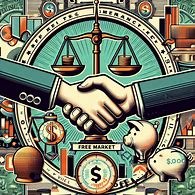I thought maybe my first post should be related to my general philosophy on government or, more specifically, what principles should be used when deciding on policy. In three words, freedom before democracy.
Before going much further, I should probably start with defining what I (and others) mean by democracy. What I mean is simple. Majority-rule. Some people also believe it means freedom of speech, freedom of religion, etc. Some people believe it means a government that treats its citizens with respect. Some people even believe its synonymous with freedom. But the problem with all those other definitions is that people that use them, also define it as majority-rule. Then whenever majority-rule supports their position, but overrides any of those other definitions, they just retort “Well, that’s democracy.” So, to keep it clear, democracy mean majority rule.
It’s probably also worth defining freedom. Surprisingly, this too can have different definitions. Some think it means doing whatever you want. But I reject that simply because what you want may affect other people in a way they don’t. So, in my definition, freedom can only be defined by all affected parties agreeing to the action. A lot of libertarians, like myself, call it the non-aggression principle (that is the idea that you never initiate violence). Free market advocates, which I also am, define it as consisting of only voluntary transactions. As a small (versus no) government type, I concede that some actions need to be adjudicated since the involved parties may not always have the option to engage in a voluntary transaction. For instance, noise ordinances fall under this category, since one party may want to be free to be as loud as they like, but the other wants to be free from the noise. Since the noise can’t be confined to one’s property, a rule is set up before hand.
So given my preferred definition of these 2 terms, I submit that the best way to make policy decisions (from being a sitting member of Congress to voting directly for state or local initiatives) is not to determine what you personally would do, but to instead consider what is the freest course of action. Only when that course isn’t clear, vote for the “fairest” solution. Or, in other words, always choose freedom before democracy.
